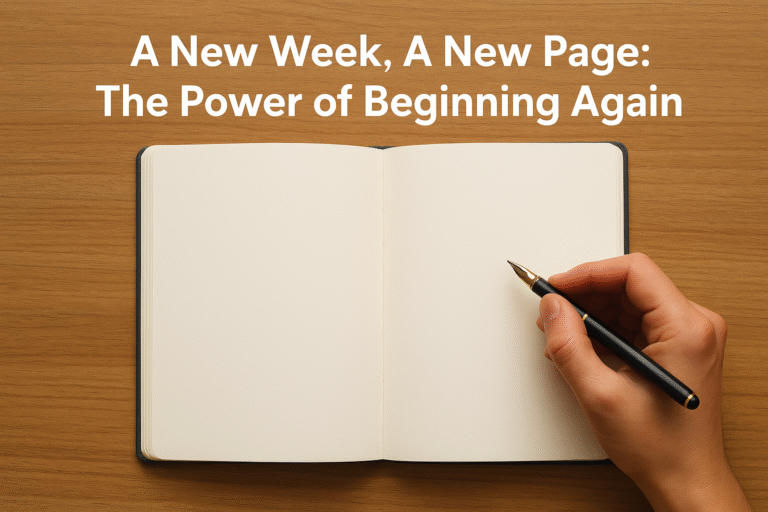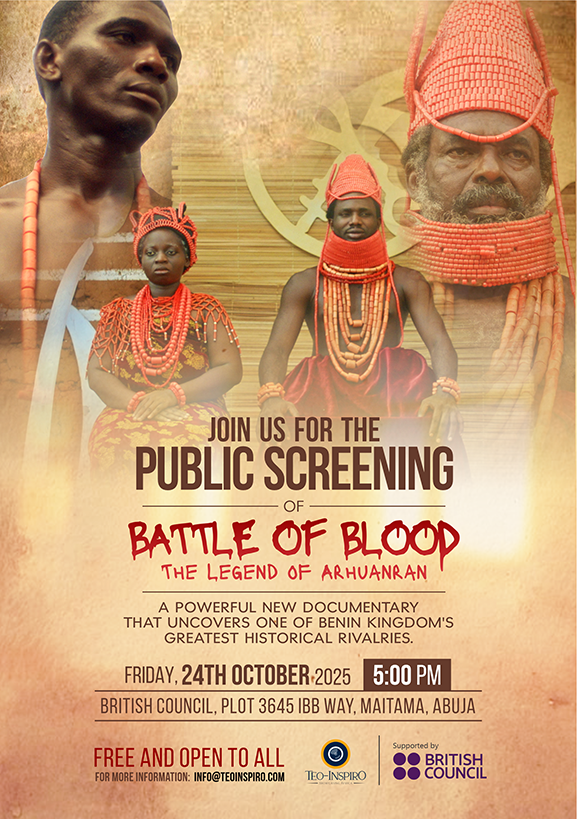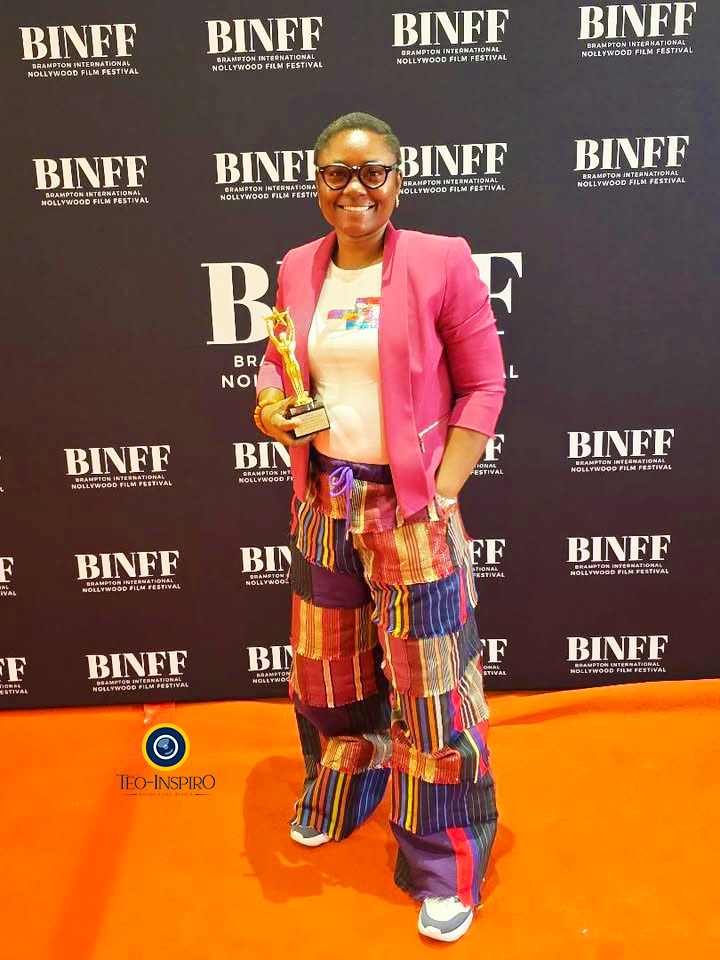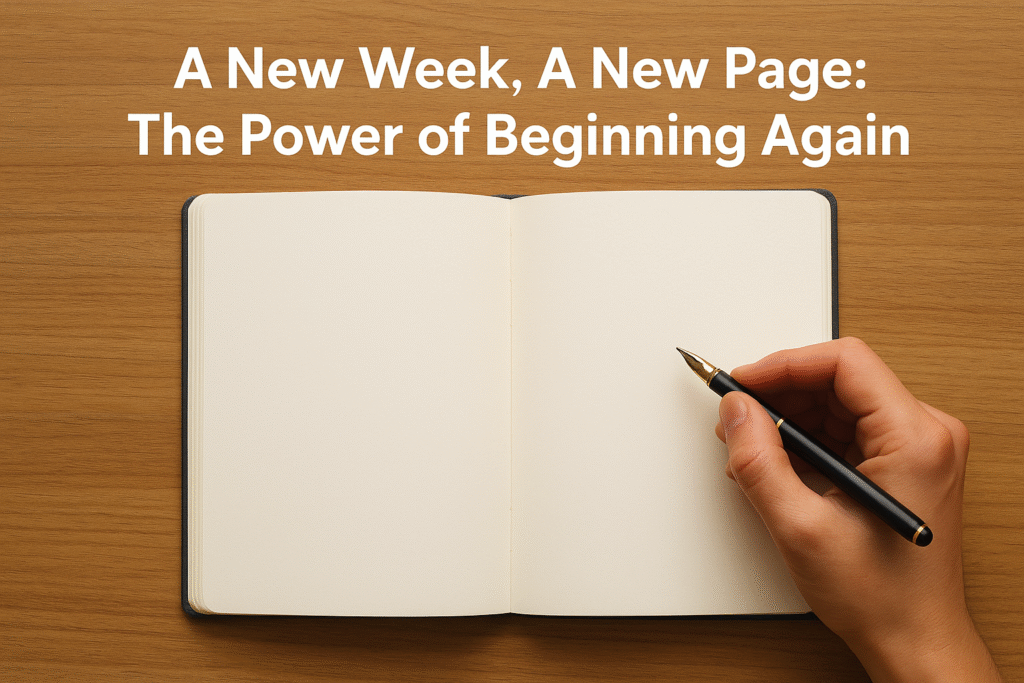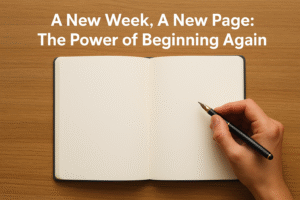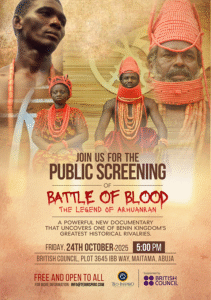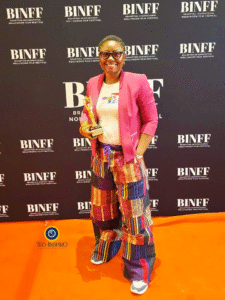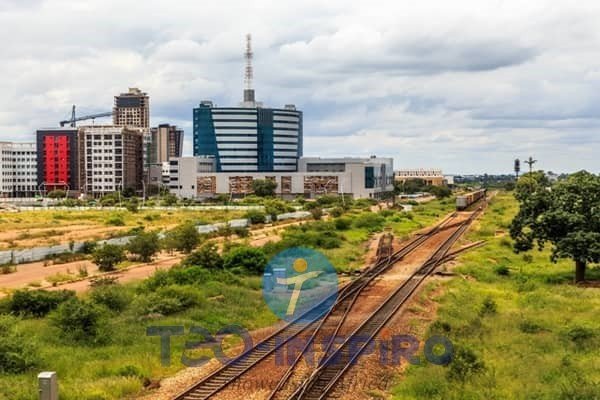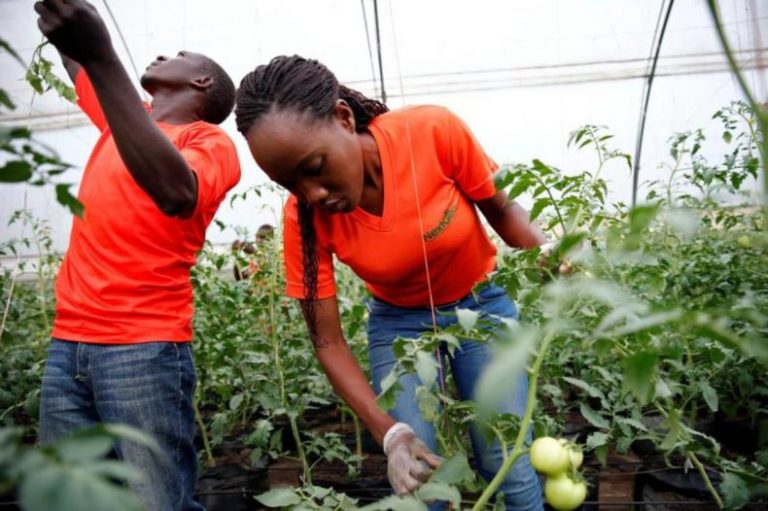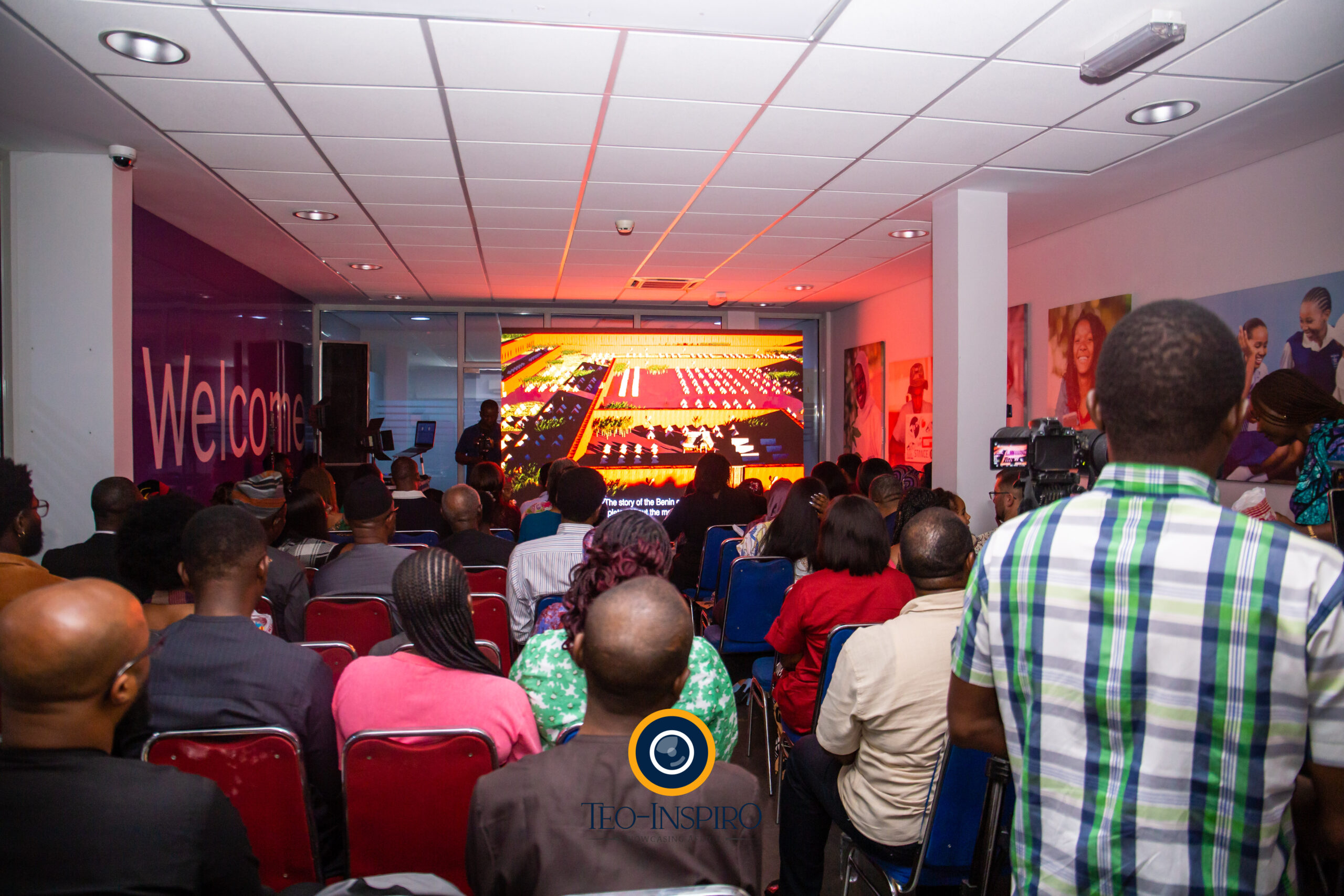
On Friday, October 24th, 2025, the lights dimmed inside a cozy hall in Abuja, and silence fell as the first frame of Battle of Blood appeared on the screen. What began as a regular film screening soon became an experience that moved hearts, ignited conversations, and reminded everyone in the room of the power of storytelling.
The Battle of Blood documentary, produced under Teo-Inspiro International, is more than a film; it is a call to reflection. It delves into realities that often remain unspoken, confronting themes of struggle, justice, and resilience. Through its storytelling, it captures the essence of why film exists—not just to entertain, but to enlighten, educate, and inspire change.
The event, supported by the British Council as part of the Creative Showcase Programme, opened with a vibrant cocktail and red carpet session where guests, storytellers, and partners connected ahead of the screening. Cameras flashed, placards with powerful messages like “I Love My History” and “African Heritage” made the rounds, and the atmosphere was electric, alive with anticipation.
Before the screening began, a goodwill message was delivered by the British Council representative, Uju Dubas-Agbasi who emphasized the importance of amplifying African voices through creative expression.
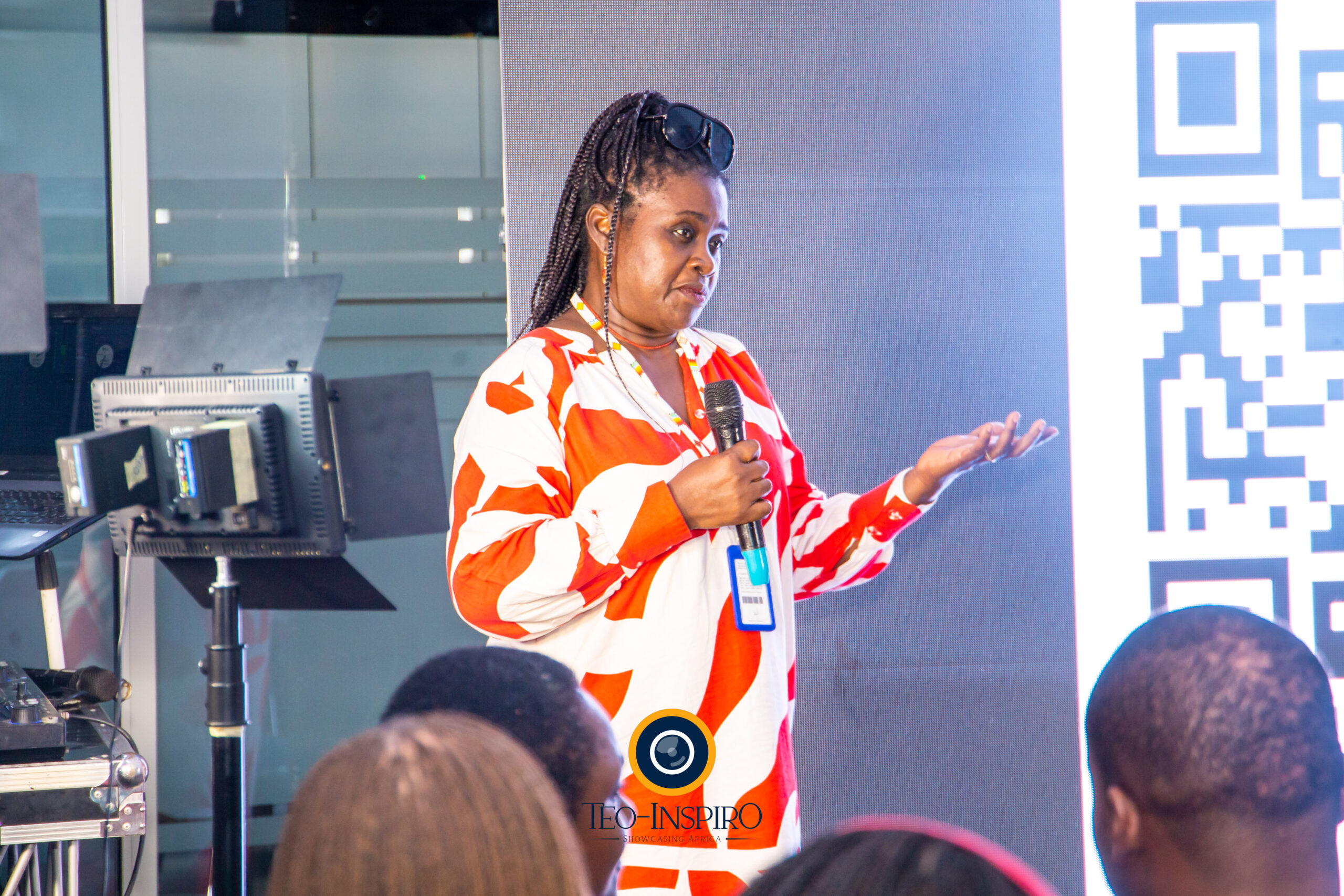
“The British Council is proud to support initiatives like this that use film and storytelling to preserve culture and empower communities,” she said. “Projects like Battle of Blood remind us that stories are not just to be told, they are to be protected and passed down.”
This was followed by a stirring address from Dr. Oghenefego Ofili, Founder and Storyteller-in-Chief of Teo-Inspiro International. She spoke about the origins of her passion for storytelling and how her childhood experiences inspired her mission to document African narratives.
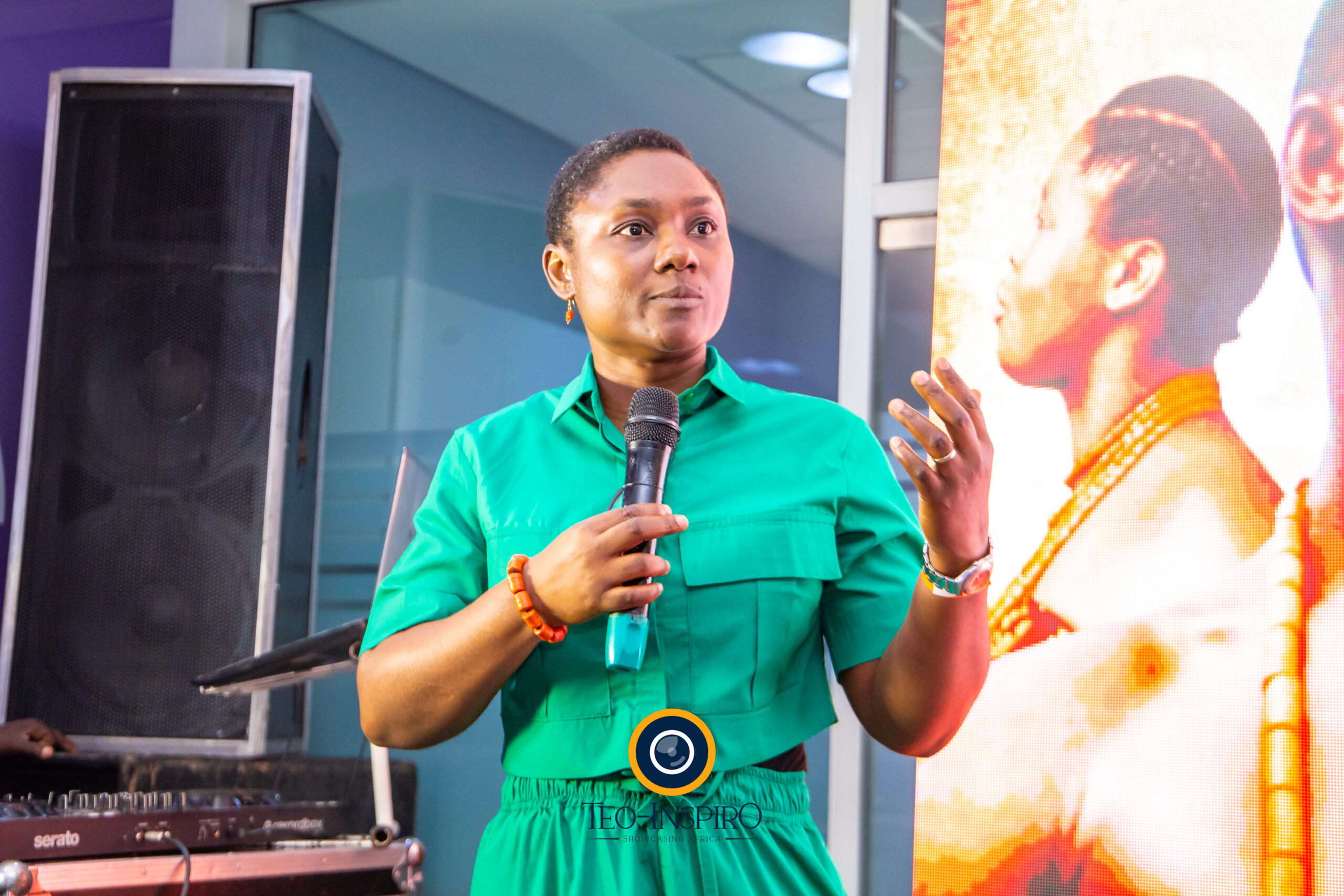
“I grew up listening to my grandparents tell stories, stories that shaped how we saw our people and our identity,” she said. “But today, many are too busy, and those oral traditions risk fading away. That is why we decided to digitize African storytelling. Because if we don’t tell our stories the way they truly happened, others will tell them for us.”
Her words set the tone for the evening, reminding everyone that storytelling is both a duty and a legacy.
As the film played, you could sense the shift in the room, moments of stillness, soft sighs, and eyes fixed on the screen. For some, it was personal; for others, it was awakening. When the end credits rolled, the conversation continued long after.

During the post-screening discussion, one participant shared, “It wasn’t just a documentary. It was a mirror. It made me think about how much we ignore until it’s too late.” Another added, “I wish this documentary could be turned into an actual movie for the world to see and be educated on our African heritage.”
These were more than reactions; they were reflections. The conversations became a space for participants to voice their thoughts on justice, resilience, and the responsibility each of us holds in shaping the society we want to see and in preserving what’s left of our African heritage.
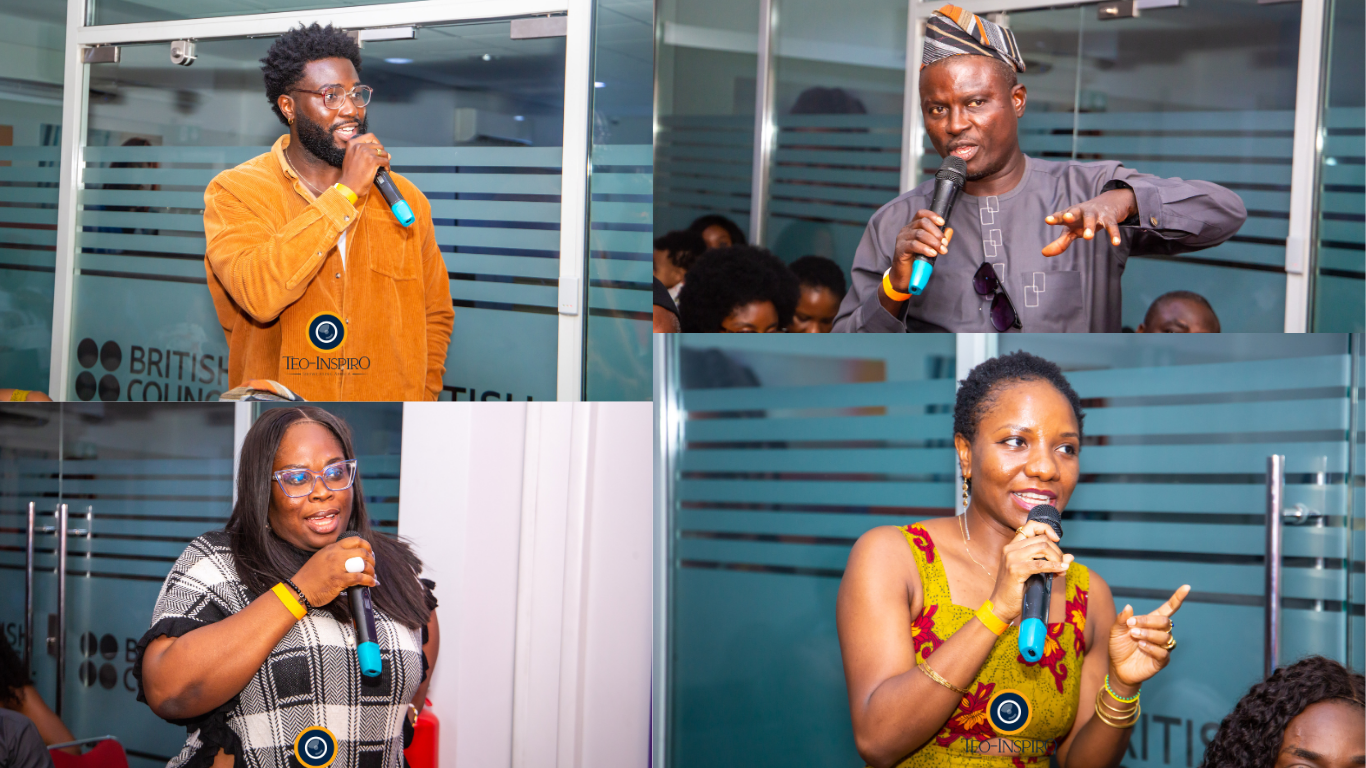
For us at Teo-Inspiro International, this screening was a testament to why we tell stories. It reaffirmed that when storytelling meets purpose, transformation begins in minds, in communities, and in culture.
The success of Battle of Blood’s Abuja screening was not only measured by its turnout but also by its impact. It reminded everyone that stories, when told truthfully, have the power to heal, to question, and to ignite change.
We want to deeply appreciate the British Council for their support through the Creative Showcase Programme. This opportunity enabled us to showcase our film to the Nigerian audience for the first time.
As we look forward to taking the film to more audiences, one thing remains clear: storytelling is not just about capturing images; it’s about capturing truth. And Battle of Blood has done exactly that.

